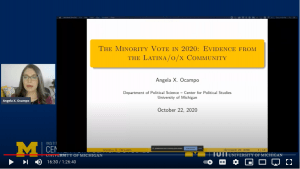Research Expertise: Race and Ethnicity
Our faculty conduct research to explore the role of race in politics and society. Their work examines attitudes about social justice movements, policing and protest, and voting behavior.
Faculty Experts

Ted Brader
Professor, Department of Political Science
Ted Brader currently serves as the Principal Investigator for the American National Election Studies and Associate Principal Investigator for Time-sharing Experiments for the Social Sciences. His research focuses on the role of emotions in politics, political partisanship, media effects on public opinion, and other topics in political psychology.
- “The Antecedents of Immigration Opinion among U.S. Whites: General Ethnocentrism or Media Priming of Latino Attitudes?”Political Psychology34(2): 149-66.
- “The Sword’s Other Edge: Perceptions of Discrimination and Racial Policy Opinion after Obama.” Public Opinion Quarterly 75(2): 201-226.
- “What Triggers Public Opposition to Immigration? Anxiety, Group Cues, and Immigration Threat.” American Journal of Political Science 52(4): 959-78.

Christian Davenport
Mary Ann and Charles R. Walgreen Professor of the Study of Human Understanding
Christian Davenport’s primary research interests include political conflict (e.g., human rights violations, genocide/politicide, torture, political surveillance, civil war and social movements), measurement, racism and popular culture.
- A Pod Called Quest takes on everything that people concerned about injustice care about from the wealth gap to voting rights, to police brutality, to reparations, to state repression and much more.
- Michigan Minds: How Political Conflict and Participation Address Issues of Inequality Michigan Minds Podcast
- How Social Movements Die: Repression and Demobilization of the Republic of New Africa Cambridge University Press
- Media Bias, Perspective and State Repression: The Black Panther Party Cambridge University Press
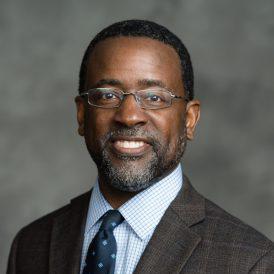
Vincent Hutchings
Hanes Walton, Jr. Professor of Political Science and Afroamerican and African Studies
Vincent Hutchings’s interests include public opinion, elections, voting behavior, and African American politics. He studies how the size of the African American constituency in congressional districts can influence legislative responsiveness to Black interests. He is also interested in the ways that campaign communications can “prime” various group identities and subsequently affect candidate evaluations.
- “If They Only Knew”: Informing Blacks and Whites about the Racial Wealth Gap. Inaugural lecture of the Hanes Walton Jr. Collegiate Professorship in Political Science and Afroamerican and African Studies on March 31, 2021.
- “Racism, Group Position, and Attitudes about Immigration among Blacks and Whites.” Du Bois Review 11(2): 419-442.
- “Sex and Race: Are black candidates more likely to be disadvantaged by sex scandals?” Political Behavior, 33(2): 179-202.
- “Explicit Racial Cues and Support for Confederate Symbols and Southern Partisanship.” The Journal of Politics 72(4):1175-1188.
- Why do Black Americans overwhelmingly vote Democrat?

Donald Kinder
Philip E. Converse Professor of Political Science
Donald Kinder’s current research interests include rehabilitating the concept of ethnocentrism and developing a psychological theory of framing.
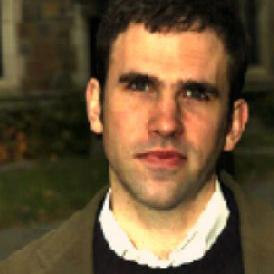
Robert Mickey
Associate Professor, Department of Political Science
Robert Mickey’s research focuses on U.S. politics in historical perspective. He is interested in American political development, political parties, racial politics, and policy responses to inequality.
- “Is America Still Safe for Democracy? Why the United States Is in Danger of Backsliding” Foreign Affairs
- Paths out of Dixie: The Democratization of Authoritarian Enclaves in America’s Deep South
- “Explaining the Contemporary Alignment of Race and Party: Evidence from California’s 1946 Ballot Initiative on Fair Employment.” Studies in American Political Development, 2008. 22(02): p. 204-228.
- Elite Communications and Racial Group Conflict in the 21st Century

Angela Ocampo
Assistant Professor, Department of Political Science
Angela Ocampo examines the political incorporation of racial, ethnic and religious minorities both as every-day participants and as political leaders within American institutions. Her current book project investigates the concept of perceived belonging to U.S. society and its influence on political interest and political engagement among Latinas/os/xs.
- “Somos Mas: How Racial Threat and Anger Mobilized Latino Voters in the Trump Era.” Political Research Quarterly, 72(4), 960-975.
- “Háblame de tí: Latino mobilization, group dynamics and issue prioritization in the 2020 Election.” Online First. The Forum: A Journal of Applied Research in Contemporary Politics
- “The Wielding Influence of Political Networks: Representation in Majority-Latino Districts“Political Research Quarterly
- Kamala Harris and the Reframing of the Vice Presidency. Event organized by UM’s Democracy & Debate Themed Semester
- What is “belonging” and how does it affect politics? Evidence from the Latinx community. Recording from Ask a Political Scientist
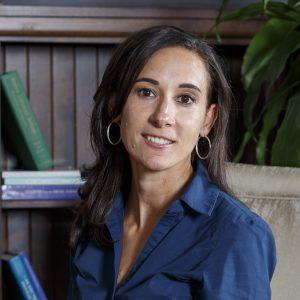
Mara Ostfeld
Assistant Research Scientist, Ford School of Public Policy
Mara Ostfeld broadly focuses on the relationship between race, media and political attitudes. She is currently working on projects exploring how exposure to Spanish-language political media affects patterns of Latino political identification, and the effect of different media frames on attitudes toward immigration policy. Beyond this research, her work has explored the implications of different survey methods when studying racial and ethnic minorities. She has published work in Political Communication and Political Psychology.
- Mara Ostfeld: Race, Media and Political Attitudes. Ford School event, Nov. 12, 2020
- The New White Flight?: The Effects of Political Appeals to Latinos on White Democrats. Polit Behav 41, 561–582 (2019).
- The Backyard Politics of Attitudes Toward Immigration. Political Psychology, 38: 21-37.

Josh Pasek
Associate Professor, Department of Communication Studies and Political Science
Josh Pasek’s research explores how new media and psychological processes each shape political attitudes, public opinion, and political behaviors. He also examines issues in the measurement of public opinion including techniques for reducing measurement error and improving population inferences.
- “Seeing Blue in Black and White: Race and Perceptions of Officer-Involved Shootings.” Perspectives on Politics, 1-19. doi:10.1017/S1537592720003618
- “Black women often ignored by social justice movements.” Michigan News
- “Intersectional Invisibility Revisited: How Group Prototypes Lead to the Erasure and Exclusion of Black Women.” Translational Issues in Psychological Science, http://dx.doi.org/10.1037/tps0000256
- “Racial Attitudes Predicted Changes in Ostensibly Race‐Neutral Political Attitudes Under the Obama Administration.” Political Psychology, 38: 313-330. https://doi.org/10.1111/pops.12315

Kevin Quinn
Professor, Department of Political Science
Kevin Quinn’s research focuses on questions of empirical legal studies and statistical methodology. His research has been supported by the National Science Foundation and has appeared in leading journals in political science, statistics, and law. .
- “Labels vs. Pictures: Treatment-Mode Effects in Experiments About Discrimination.” Political Analysis. 26: 20-33.
- “Racially Polarized Voting.” University of Chicago Law Review. 83: 587-692.
- “Can Voter ID Laws Be Administered in a Race-Neutral Manner? Evidence from the City of Boston in 2008.” Quarterly Journal of Political Science. 7: 1-33.
- “Exit Polling and Racial Bloc Voting: Combining Individual-Level and R × C Ecological Data.” Annals of Applied Statistics. 4: 1774-1796.
- Collaborative Research: Measuring Apparent Race and Ethnicity with Applications to the Study of Discrimination
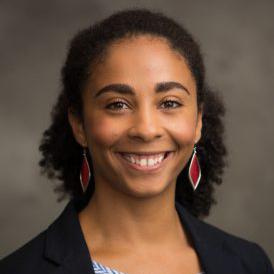
Shea Streeter
Assistant Professor, Department of Political Science
Shea Streeter’s research examines how race and the local environment shape the ways that people experience, perceive, and respond to incidents of police violence in the US.
- Podcast episode: Police Brutality in the United States. The Oxford Human Rights Hub Podcast
- Lethal Force in Black and White: Assessing Racial Disparities in the Circumstances of Police Killings. The Journal of Politics 81, no. 3 (July 2019):1124-1132. https://doi.org/10.1086/703541
- When the world changes under a political scientist’s feet. The Conversation
- Shea Streeter examines the circumstances surrounding police violence and protest. CPS Blog
- 2020 Police Brutality Protests: Why Now? Event hosted by the University of Michigan Alumni Club of Washington, DC

Nicholas Valentino
Research Professor
Nicholas Valentino studies political communication, political psychology, and electoral behavior. His work focuses on political campaigns, racial attitudes, emotions, and social group cues in news and political advertising. His current work examines the intersection between racial attitudes and emotion in predicting political participation and vote choice.
- Seeing Us in Them: Social Divisions and the Politics of Group Empathy Cambridge University Press
- Ethnocentrism versus group-specific stereotyping in immigration opinion: cross-national evidence on the distinctiveness of immigrant groups. Journal of Ethnic and Migration Studies
- The Changing Norms of Racial Political Rhetoric and the End of Racial Priming. The Journal of Politics
- Group Empathy in Response to Nonverbal Racial/Ethnic Cues: A National Experiment on Immigration Policy Attitudes. American Behavioral Scientist
- Immigration Opposition Among US Whites: General Ethnocentrism or Media Priming of Attitudes About Latinos? Political Psychology
- Emotional Substrates of White Racial Attitudes. American Journal of Political Science
Research Findings

The racial wealth gap
Vincent Hutchings led an experiment showing that people consistently underestimate the racial wealth gap. Study participants were open to learning new information, that information did not change support for policy. Read more.

Police violence and protest
Research by Shea Streeter shows that most protests emerge after police killings of African Americans. A large number of white Americans are killed by police officers, but their deaths are less likely to lead to protest. Read more.

What we call racial violence matters
Kiela Crabtree and Corina Simonelli find that calling an act of violence a “hate crime” has little effect on perceptions of violence for white Americans. For non-white Americans, however, this label is associated with greater anger in reaction to the incident. Read more.

